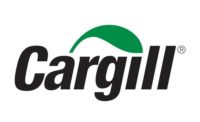Being eco-friendly is a $40 billion business, but it's becoming increasingly apparent that consumers aren't paying as much attention, at least not if it's going to cost them more.
A Green Gauge survey by research company GfK finds that while 93% of consumers say they have personally changed their behavior to conserve energy in their household, they're becoming less willing to pay more for green products. The survey of 2,000 U.S. consumers, fielded last summer, finds five- to 12-point drops in the percentage of consumers willing to pay more for eco-friendly cars, biodegradable plastic packaging, energy-efficient light bulbs, electricity from renewable resources or clothing made of organic or recycled materials.
Much of the consumer pushback seems to stem from marketers for “overhyping green products” and making overly aggressive claims.
"You have this kind of heightened distrust," states Diane Crispell, consulting director at GfK. "Consumers have become hypercritical. You see it with green and health claims." However, environmentalism is still big business. Sales of environmentally-friendly products in the U.S. exceeded $40 billion last year, according to data from various market-tracking services, including $29.2 billion for organic food; more than $10 billion for hybrid, electric and clean-diesel vehicles; more than $2 billion on energy-efficient light bulbs; and $640 million on green cleaning products.
And inflating claims will become tougher. The Federal Trade Commission is about to issue its final Green Guide, to be released at the Oct. 1 National Advertising Division meeting in New York. Speculative environmental claims prompted the development of the guide, which will mean increased regulatory scrutiny of marketers' environmental benefit claims.
But the most committed and educated consumers will still being willing and able to spend more on “green” products, while those in the mainstream will most likely grow more skeptical.
Source: adage.com









